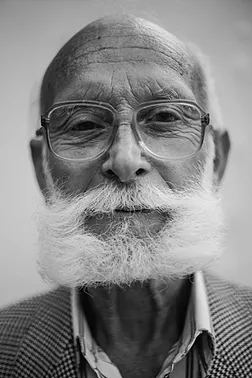Suffering from hair loss is probably more common than you think it is. Hair loss afflicts about one in two women, while 40% of men would have noticeable hair loss by the age of 35. This percentage shoots up the older men get, up to 80% by the age of 80.
Survey has shown that feeling depressed about their hair loss affects one out of two Singaporean women and an overwhelming 90% of us agree that hair loss affects our self-confidence.
Before you start to fret, let’s check out some well-known myths about hair loss – along with some options for natural hair loss prevention.
1. Myth: Age is the main factor for hair loss
False. Although age will contribute to hair loss (especially for men), other factors also come into play. For example, genetics, medical conditions, hormones, humidity, heat, pollution, diet – and the biggest cause of hair loss – stress.
You won’t be able to do much with your genetics but there are plenty of other things you can do to help prevent hair loss. Reducing stress, living a healthy lifestyle – one with regular exercise and a balanced diet, can all help with preventing hair loss.
2. Myth: Losing more than a couple of hair strands a day is a sure sign that you are suffering from hair loss
False. It is completely normal for you to shed up to 150 strands a day without having to worry about hair loss. Our hair follows a very specific growth pattern – the anagen (growth) phase, catagen (renewal) phase and telogen (resting) phase. It is during the end of the telogen phase that hair falls out.
Losing more than 150 strands a day or having hair fall out in clumps is an indicator of hair loss. It may be difficult to keep count of how many hair strands you lose throughout the day – an easier method would be to check the amount of hair that falls out after a shower. Keep an eye on whether you’re losing more hair after each wash.
3. Myth: Hair loss occurs predominantly in men
True. Men tend to suffer more from hair loss compared to women due to higher levels of testosterone in their bodies. Hair loss in men tend to follow the same pattern – early in hair loss, hair is generally lost around the temples while the hairline will slowly start to recede. At the same time, hair will start to thin out at the top of the head.
Unlike men, who can suffer from partial or complete baldness, hair loss in women is slightly different as it rarely leads to total baldness. Hair loss in women usually results in an overall thinning of the hair instead of a receding hairline.
4. Myth: Young people don’t suffer from hair loss
False. Unfortunately, due to factors such as environmental damage, lifestyle and diet, your age does not always protect you against hair loss. Try to limit environmental damage that can cause long-term harm to hair, leading to hair loss. Enemies of hair include overexposure to the sun (UV damage), heat due to excessive styling, mechanical damage from over combing, chemical damage from colouring or bleaching your hair and excessive product use.
5. Myth: It is natural to lose hair after having a baby
True. This condition is known as postpartum hair loss and is a completely natural process. During pregnancy, the elevated level of hormones in a woman’s body prevents hair loss. Any hair that was supposed to be shed off has been prevented from doing so. This is one reason why pregnant women are said to have amazing hair!
After pregnancy, however, the body reverts back to normal – and this includes shedding all the hair that was supposed to have been shed during those 9 months. A new mother will experience massive shedding within 1-3 months of giving birth – a process that can last for up to 6 months before things start to normalise.
6. Myth: Asians have stronger hair than Caucasians
True. Studies have shown that the average age for greying hair among Caucasians is in the mid-30s, compared to late 30s for those of Asian heritage. It is thought that Africans start to experience greying much later when they reach their mid-40s.

7. Myth: Grey hair is weaker and falls out easier
False. All types of hair on our head are just as strong as each other – whether they are pigmented, grey or white.
Greying of your hair is closely associated with your age, although this is controlled by genetics. Our hair turns grey because the hair strand contains less melanin (the pigment that gives your hair its colour) than our natural hair. White hair strands, on the other hand, contain no melanin at all. Other than the differences in melanin levels, all hair types are the same.
8. Myth: If you’re losing hair, blame your mother
False. It’s an old wives’ tale that hair loss is inherited from your mother’s family. The story goes, if your maternal grandfather has a headful of hair, you’ll be fine. However, hair density is actually something you inherit from both sides of your family.
You will have a better indication of hair loss by paying attention to all members of your family – especially your grandparents, parents and siblings. The more relatives you have who are showing signs of baldness, the higher your chances of going down the same road.
9. Myth: Hair loss cannot be prevented
False. The best way to prevent hair loss is to take action as soon as possible. A balanced lifestyle featuring regular exercise, a healthy diet and limited alcohol consumption can help. Regular, gentle care such as washing your hair every day or two, limited use of products and scalp massages can also help to improve the overall health of hair and scalp.

10. Myth: Only medicated hair care products can help with hair loss
False. There are plenty of natural ingredients you can include in your hair care routine to help reduce hair loss.
Supplements and extracts derived from traditional Ayurvedic and TCM herbs such as the Indian Gooseberry (Emblica officinalis), Chinese Thuja (Platycladus orientalis), wild Ginger root (Asiasari radix), Gingko (Ginkgo biloba), Noni (Morinda citrifolia) and Ginseng (Panax ginseng) to name but a few, have been scientifically proven to help with enhancing hair regrowth and reducing hair loss.
All content on the orgayayana.com including: text, images, audio, or other formats are created for informational and inspirational purposes only. The responsibility for the information and views set out in the content on www.orgayana.com lies entirely with the authors and is not intended to be a substitute for professional medical advice, diagnosis, or treatment. Always seek the advice of your physician or other qualified health provider with any questions you may have regarding a medical condition. Never disregard professional medical advice or delay in seeking it because of something you have read on this website.




